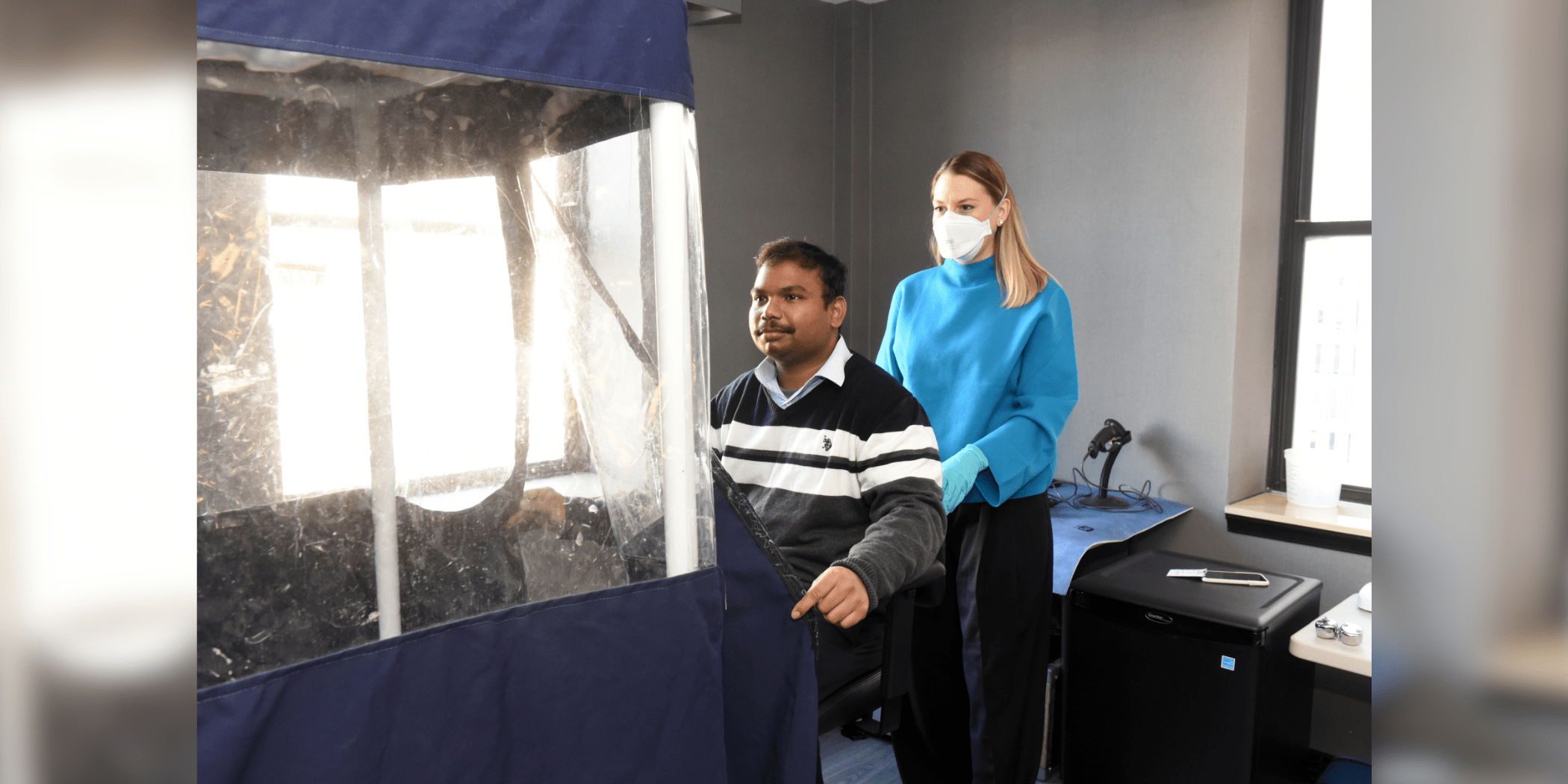
In the hallways of a downtown Baltimore hotel, University of Maryland School of Public Health Professor Dr. Donald Milton and colleagues are breaking new ground this month, launching a first-of-its-kind study that aims to learn how the flu is transmitted. Do you get it when a person with the virus coughs on you? Touches you? Or maybe it’s floating in the air, waiting to be inhaled by a new friendly host.
“Nobody has successfully observed influenza transmission under controlled conditions. It has never been done.” Milton said. “Until we can observe transmission and see how it really happened in real time, we don't know for sure how it works.”
To find out, researchers have recruited healthy volunteers to spend up to two weeks in a closed-off floor of a hotel, where the volunteers will participate in a study that will expose them to the flu from people in the community who are already infected, doing activities like playing cards together. For the sick volunteers’ efforts, they’ll be compensated up to $1,900.
But while the space has many hotel hallmarks (hello, neatly made bed!), it’s clearly also set up for research, outfitted with devices to measure the amount of virus particles in exhaled air and to test devices like UV lights and air filters to see if purifying the air we breathe can keep flu viruses from spreading.
The researchers aimed for a close replica of real-life flu-catching conditions. “These things happen all the time when we get together for the holidays, when we get together for meals, and other social groups,” said Dr. Wilbur Chen, the study’s lead collaborator from the University of Maryland School of Medicine. “We just need to be able to capture it and monitor it very closely while on the quarantine unit.”
Milton has a hypothesis, “that the virus is mainly spread by breathing air contaminated with viruses,” he said. “And if that turns out to be true, we can take action to prevent flu – and potentially other viruses – by improving air quality in public places, like schools and religious meeting houses, along with in homes.”
But for the critical work to begin, the researchers need help finding those sick volunteers: People between 18-59 who have just begun the flu –with a fever and other symptoms.
The $15 million study, a collaboration between the School of Public Health in College Park and the School of Medicine in Baltimore, is funded by the National Institutes of Health under cooperative agreement U19AI162130.
And as the researchers work to learn how to better prevent flu, they urge people to take precautions now to keep you healthy, like getting your flu shot, using air filters and masks, and washing your hands.
Recruitment opened for sick volunteers on January 5 and will continue for the next two months. Flu sufferers interested in volunteering can call: 410-706-8800 or email: clintrial@som.umaryland.edu. Learn more at www.medschool.umaryland.edu/cvd/trials/emit2/